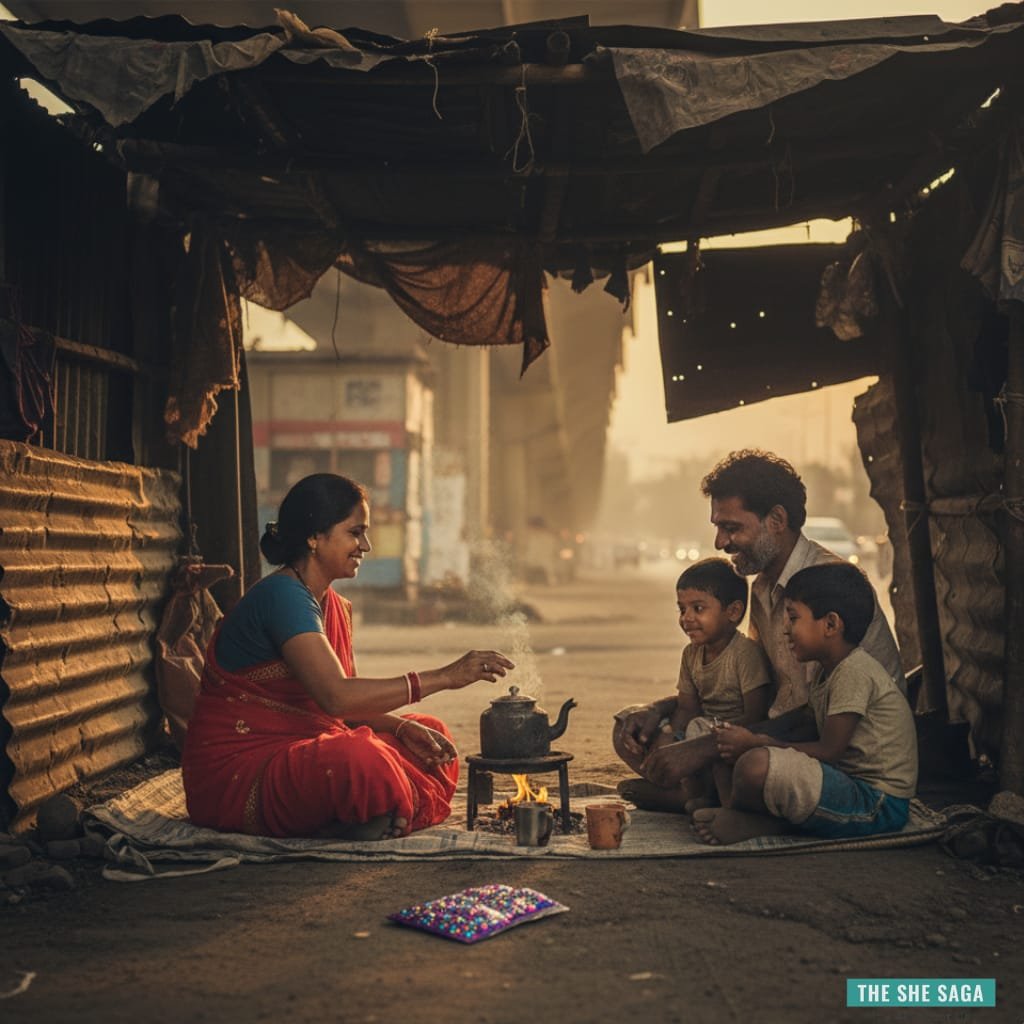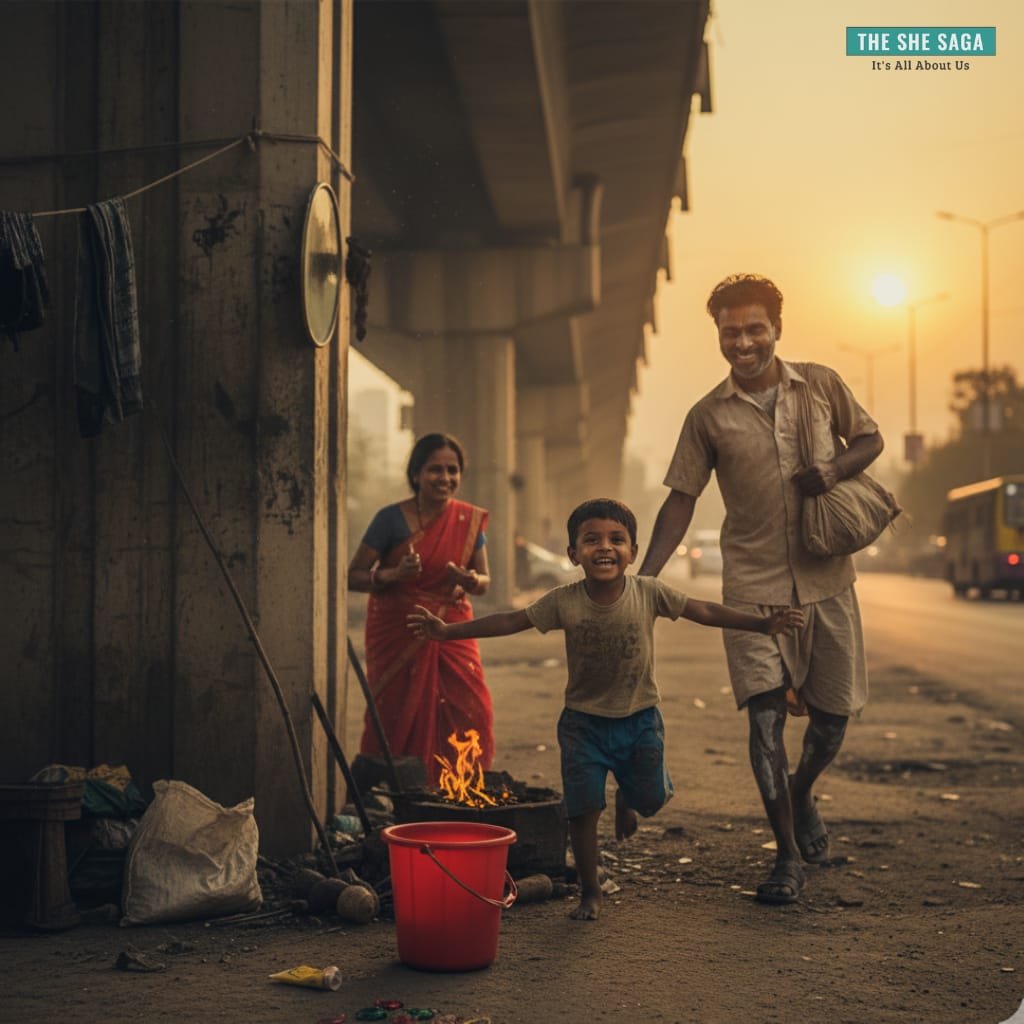The evening sun dripped gold into her hair, turning wild strands into molten silk. The comb tugged and coaxed until they lay smooth, then twisted into a long, lean plait – a fragile rope swaying against her hip.
Under the flyover, where the air smelt faintly of dust and diesel, her small world clung to the concrete pillar like a stubborn vine: mirror, bucket, clothesline, the fire pit glowing in wait. Her saree, hurriedly draped, clung in uneven folds to her reed-thin frame. Bright red with golden tassels, it shouted against the muted blue blouse that whispered of wear and fatigue. Beneath the high hem, cracked feet found balance on the gritty ground.

The red bucket gleamed at her feet. She scooped water into her palms, splashing her face. The coolness was a benediction, cutting through the heat rising from the road above. A cracked mirror, hung from a rusted nail on the pillar, caught her reflection in fractured truths. She traced the scar on her cheek, then smiled faintly at the space between her brows, as if greeting herself.
From a cloth bag, she pulled out a crumpled yellow tube, rubbed cream between her palms, and smoothed it over her sun-worn face. “A little can go a long way,” she murmured to the woman in the glass, watching the sheen bloom across her skin. A sweep of kohl turned her eyes into restless waters. A vermillion bindi claimed her forehead, a small sun against her skin.
She shook out her saree and retied it with precision, pleats crisp, the golden tassels meeting mid-air like conspirators.

Two boys bounded into her shade, shorts slipping low, giggles tumbling over themselves. One by one, she washed them with water from the bucket, the splashes catching stray light. She dried them with a worn rag, combed their hair with a white comb missing teeth, smoothed collars, fastened shirts with safety pins unhooked from her green glass bangles. She stepped back, pride softening her angular face.
Three pairs of eyes turned to the road. Silence thickened. Then squeals cracked it open. They had spotted him.
He strode toward the flyover’s shadow, cloth bag swinging, white dust clinging to his legs from the construction site. The boys ran to him, their thin arms clutching his knees. His laughter rang against the concrete, and his gaze found hers. It lingered – long enough to heat her cheeks more than the cream ever could.
She took his bag. Inside, the empty lunchbox she had packed that morning. And then, something else. A small packet of bindis, ornate and shimmering, unlike the plain ones she wore daily. Her breath caught. She pressed it to her chest, the gesture both shy and fierce. His smile was quiet, pleased.
They walked together to the low patch of fabric and tin they called home. She squatted near the simmering kettle, the fragrance of tea unfurling into the heavy air. Side by side, they sipped from chipped glasses, the bitter sweetness warming them from the inside out.
Above, cars groaned and buses snarled, impatient in their race towards somewhere else.

Below, in the underbelly of the flyover, love stitched itself together in small, triumphant acts -cream smoothed on a tired face, kohl on eyes that refused to dull, boys scrubbed clean, a packet of bindis pressed to the heart.
And when the night descended and the roar of the city dulled to a distant hum, the glow from their little fire pooled over the concrete like a stubborn patch of sunrise. Proof that even here, in the shadow of the flyover, the day could begin again.
Lata Galwani










